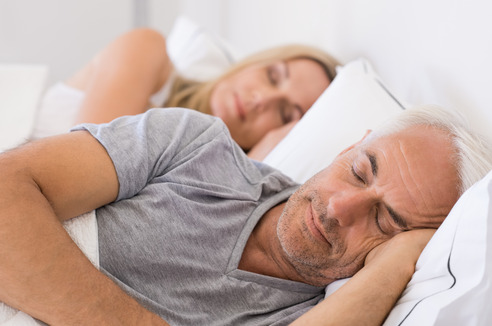
Affecting a significant number of adults, sleep apnea is a common disorder characterized by breathing pauses during sleep. While many factors contribute to this condition, did you know that the temperature of your sleeping environment could affect the severity and frequency of apneic episodes? Finding the perfect temperature could be a game-changer in managing this condition! Read on to learn more.
Understanding the Connection Between Temperature and Sleep Apnea
Sleep apnea is a complex issue with many contributing factors. While weight and physical anatomy are known players, the obstruction of the airway during sleep is a primary culprit. However, you may be surprised to learn that the temperature of your bedroom matters too.
Extreme heat and humidity can worsen breathing difficulties, particularly for those with lung conditions like asthma, COPD, or sleep apnea. Plus, your body’s temperature naturally fluctuates throughout the day, following your internal clock. Exposure to excessive heat can disrupt deep and REM sleep, which is crucial for quality rest. That’s why finding the right sleeping environment tailored to your preferences is necessary for a good night’s sleep!
Tips for Creating a Sleep-Friendly Bedroom Environment
Research indicates that maintaining a bedroom temperature of 65 to 70 degrees Fahrenheit promotes better sleep – but it’s not just about the numbers on the thermostat. Your choice of bedding and clothing matters too! Be sure to personalize your sleep space to find what works best for you.
In addition to temperature control, minimizing distractions and allergens in your bedroom can enhance your sleep quality. Keep pet hair and dust at bay to improve breathing and ensure a more restful sleep experience. If you’re seeking professional treatment for sleep apnea, options like oral appliances or CPAP machines can effectively manage the condition and promote better sleep.
While temperature isn’t the sole cause of sleep apnea, it certainly plays a significant role in sleep disruptions. By creating a comfortable sleep environment and addressing potential disturbances, you can alleviate sleep apnea symptoms and enjoy more restful nights!
About the Author
For over two decades, Dr. Jeff Rodgers has dedicated his career to private practice, focusing particularly on dental sleep medicine. As a board-certified sleep specialist, Dr. Rodgers provides expert care to patients dealing with sleep-breathing disorders. To learn more about sleep apnea or to book an appointment, visit his website or call (770) 394-4310.
